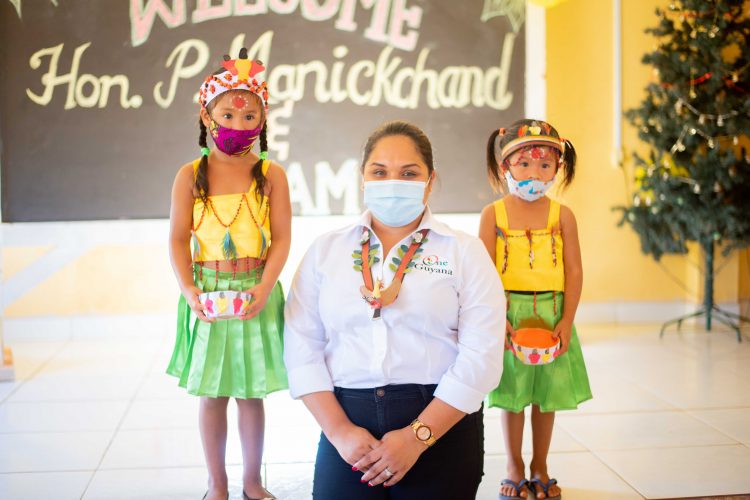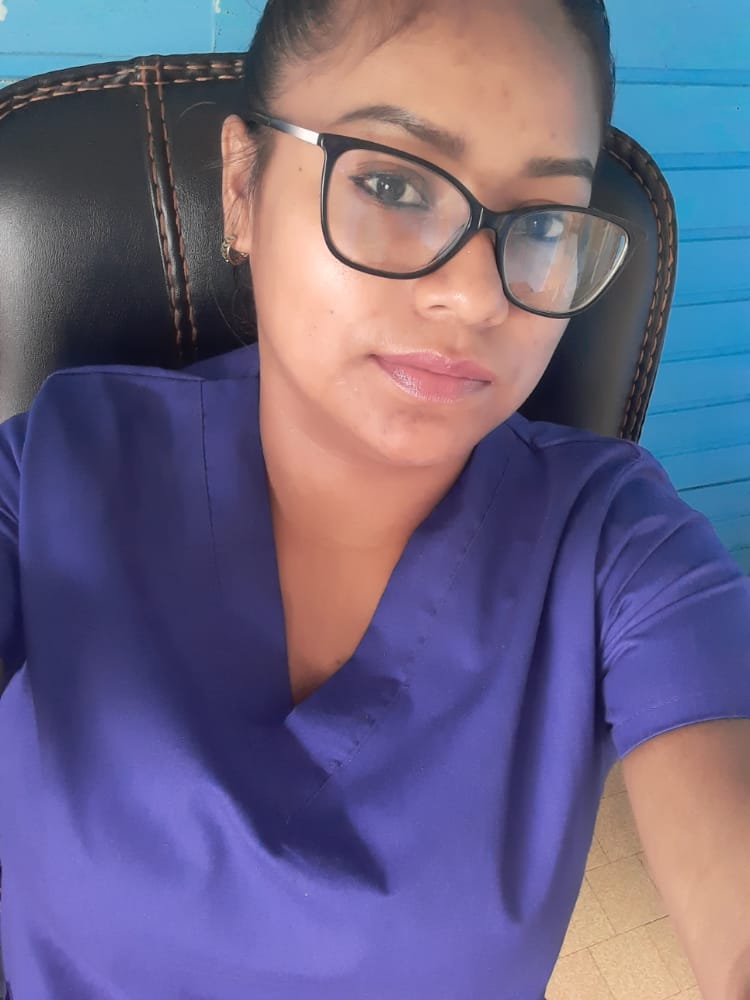Shonette Francis, a nurse at the Kumaka District Hospital, is one of several assigned to taking care of isolated COVID patients in the Moruca sub district of Region One. Of the four years she has been in the profession, this year has been the toughest so far, but she is no quitter.
The hospital, she disclosed, is already understaffed so when it was asked which nurses would work with COVID patients, only a few nurses responded to the call. Francis said that although they were given a choice, she felt as though she had no option, being one of the few nurses who hadn’t a family to take care of. She admitted that although she was worried for her own safety, she accepted the new challenge.
“Each day we do rounds. We have patients that need to be monitored around the clock, sometimes we go out into the field to do testing and sometimes we go out to extract patients who have tested positive for COVID,” shared the nurse of some of her duties since the onset of the pandemic. Whenever, a patient becomes critical, the nurse on duty is expected to work a twenty-four-hour shift because of the shortage of staff. Francis shared that until the pandemic, she has never been in a situation where she was required to work round-the-clock.

Aside from her basic duties, she also has to keep an eye on patients to ensure they keep their masks on and remember to maintain social distance.
The nurses working in isolation stay at the nurses’ hostel in the Kumaka District Hospital’s compound and are required to work two full weeks caring for the patients. They are then allowed two weeks off, one of which is used for quarantining. At the end of the quarantine, if they show no symptoms of the coronavirus, they are allowed to go home to visit with their families for the next week. Last week Sunday was the end of Francis’ two-week shift so at the time she spoke with this newspaper, she was on quarantine. According to Francis, when she came off her shift, there was only one patient in isolation.
Asked whether nurses working in isolation are given any remuneration in addition to their salaries, she responded that they are not. Francis related that at the beginning of the pandemic, she and her colleagues working in isolation were promised by their supervisors that they’d be given additional remuneration. She said that these promises were made during the tenure of both administrations but nine months on, they have been paid nothing extra.
Aside from the satisfaction of caring for others, Francis said the new task has been taking her to different parts of the region which she had never before seen, adding that she welcomes this though the main objective of the trip somewhat sobers the experience.
Once persons are tested, they receive their results in two days. Francis said that the process for results is taking less time unlike several months into the pandemic where one could end up waiting for as long as two weeks.
According to the nurse, whenever someone tests positive, they would go with the hospital’s bus to pick them up to have them put into isolation. Some persons, she said, are reluctant and would not want to go to wherever they would be isolated. She shared that many times, after long talks with them about the service offered at the hospital, the meals being prepared for them, among other positives, they would finally be persuaded to go. Francis recalled hearing one of her colleagues telling of one person who had tested positive for COVID giving them a really hard time, so much so that the police had to be involved before the person finally agreed to be isolated.
Although persons are isolated in an institution, some choose to be isolated in their homes. In such a case, they are required to sign a contract committing to staying in their homes and not venturing out into the community. Since health care workers are rarely around to see that they are true to their word, their neighbours take on the role of being their ‘brother’s keeper’ where they would constantly check to see whether or not the neighbour who tested positive is staying at home. If not, they are required to contact the hospital so that the health care workers can return and pick them up.
Kamwatta Mission, the community from which she hails, was one of the communities that was hit by the pandemic. It is situated about six miles from the hospital. Thankfully, there were no confirmed COVID fatalities.
Persons, she noted, are not as scared of catching the virus as they were some months ago. She recalls that when she started going home at first, her parents were worried and told her she should have stayed at the hostel instead. In fact, Francis recalled walking towards her home during the beginning of the pandemic when her younger sisters met her along the way. One of them hugged her instantly but was immediately reproached by the other sister who told the child that she needed to wait until Francis had taken a bath. Their demeanour towards her coming home has since changed yet they are still aware of how careful they should all be. Francis noted that though she takes the necessary precautions as a nurse dealing with COVID patients, to avoid contracting the virus and passing it on to her family, she still makes an effort to call them daily to check in with them and see that they are all doing well. She shared that she has already been tested four times for COVID and on each occasion, the result was negative.
Minister of Health, Dr Frank Anthony had said last week that frontline health workers will be the first to receive COVID-19 vaccines. Asked how she feels about this being a frontline health worker, Francis said she is still a bit concerned about the possible side effects of the vaccine and therefore doesn’t mind being in the second set which would allow her to observe its effects if any. Until then she intends to continue taking the necessary precautions to prevent her from contracting the virus.






